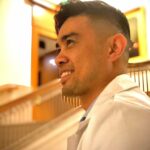Starting a new postdoctoral experience is an exciting and challenging time in the life of a recent graduate. After completing a doctoral degree (more commonly a PhD or MD), postdoctoral researchers have the opportunity to continue their academic and professional development in an environment that is rare for doctors of chiropractic to occupy. With the freedom to explore new research questions and develop new skills, postdoctoral researchers are poised to make significant contributions to their field of study. However, the transition from chiropractic student to postdoc can be daunting, and navigating the complexities of an unfamiliar pursuit can be challenging. Having been a research scholar for a few months now, I can speak on the endeavor of starting a new postdoctoral experience and how I approached the opportunity.

Having known since the first quarter of my chiropractic program that I wanted formal postdoctoral training experience, I spent my time attempting to become competitive for those positions. To that end, I concurrently completed a master’s degree in sports medicine with my Doctor of Chiropractic degree from University of Western States, graduated summa cum laude, and moved to the Midwest for a chiropractic student clerkship in a hospital system at the height of the COVID-19 pandemic.
I was elated to find myself back in Los Angeles after having matched with the Greater Los Angeles VA Healthcare System as their chiropractic resident. I was even happier upon discovering that the learning environment the LA chiropractic attendings perpetuated was one of support and understanding in which I thrived.
It was during residency that I began to meaningfully expand my professional network through taking advantage of my mentors’ connections and shameless cold emailing. The effort snowballed with connections leading to discussions with more contacts affiliated with institutions further and further east. Eventually, I found myself meeting with the individual who was to become my mentor as well as my Principal Investigator (PI) at Duke University. I made this connection at the end of residency and setbacks continued to occur that prevented a seamless transition from residency to research fellowship. However, it was because of these hinderances that I found a job I truly enjoyed as clinical faculty at Southern California University of Health Sciences, which also played key roles in the creation of the research position as I waited for Duke’s approval to officially start.
The Duke Post-Doctoral Fellowship
Duke University is renowned for exceptional research programs that provide opportunities to work closely with distinguished faculty members, network with established researchers, and have an incredibly enriching postdoctoral experience. One of those distinguished faculty members is the driving force in the creation of the research scholar role that I currently occupy, Christine Goertz, DC, PhD.
My position within the Orthopaedic Surgery Department at the Duke University School of Medicine is funded by an Administrative Supplement for Complementary Health Practitioner Research Experience from the National Center for Complementary and Integrative Health (NCCIH) with additional support in pursuing a Master of Health Science in Clinical Research provided by the NCMIC Foundation.
At Duke, there is a seemingly limitless number of resources available to the postdoctoral research trainee. With formal coursework, practical involvement working on the IMPACt-LBP multisite pragmatic trial with my PI (which aims to evaluate the effect of first-contact patient referral to physical therapists and doctors of chiropractic), and professional development resources provided by the Duke Clinical Research Institute along with other such institutions, I am fortunate to have found a comprehensive experience to develop into a successful clinician-investigator.
Additional opportunities to deepen my understanding of grant writing, NIH mechanisms, and the conduct of research exist through attending conferences and professional presentations held by various experts. Thus far, the overall postdoctoral research experience at Duke University has been exceptional at providing thorough instruction.
The Road to Post-Graduate Training
For the upcoming and recent graduate in search of postgraduate training, there are a few avenues to consider, depending on their desired projected career path. To my knowledge, the VA, Aurora Health Care, and most chiropractic colleges provide postgraduate residency training. Specific to postdoctoral research training positions, the VA may have reasonable programs appropriate for the prospective chiropractor-investigator as well as fellowship programs at various institutions funded by T32 mechanisms in addition to the BRIDG program at the University of Washington.
To my knowledge, existing research training programs open to or currently held by chiropractors include Dartmouth, Yale, Harvard, and University of Minnesota (although, I can neither speak for the mechanism of how some of these programs are funded nor can I comment on when or whether they will be taking applicants).
Another route to securing a research fellowship is to find a PI willing to provide mentored experience. If the PI agrees, they will likely be knowledgeable of funding sources to provide a postdoctoral research experience. The aforementioned information serves as a suggestion for prospective applicants on where to begin finding information (the onus of finding current information on these programs is on the applicant).
To the willing, pursuing postdoctoral training is a worthwhile activity not many have a chance to undertake. I caution any prospective applicant to prepare for discouraging rejection but also to have faith in their capabilities and be resilient in their pursuit. A valuable early lesson I came upon in becoming an early-career investigator is that more is learned from rejection than from inactivity.
Look for another installment from Dr. Perfecto in coming months on the ACA Blog.
Dr. Perfecto is a research scholar affiliated with the IMPACt-LBP pragmatic trial under Dr. Christine Goertz in the Orthopaedic Surgery Department at Duke University School of Medicine. He has completed his Doctor of Chiropractic degree, M.S. in Sports Medicine, and is pursuing an MHSc. in Clinical Research through Duke’s Clinical Research Training Program. Dr. Perfecto has completed a chiropractic residency at the Greater Los Angeles VA and is also a certified chiropractic sports physician.
